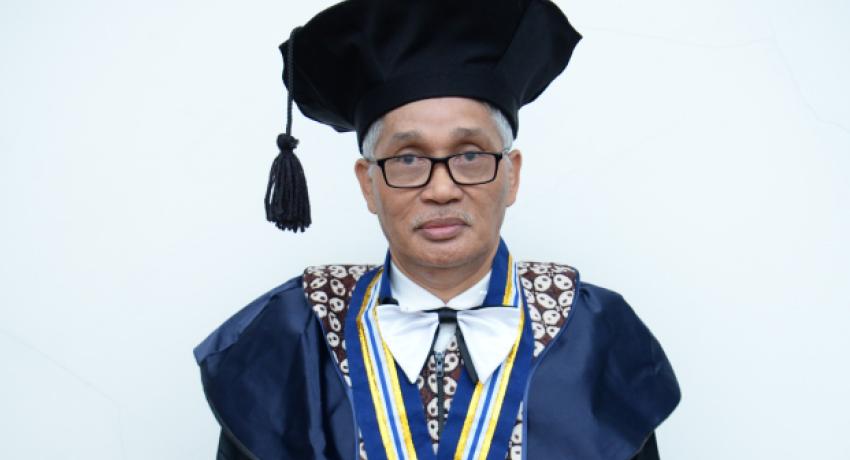Prof. Dr. Sugeng Bayu Wahyono, M.Si.
In the turmoil of digital transformation, education has become an inseparable part of the changes taking place in Indonesia. However, with the widespread use of technology in learning, there are risks to forming active subjects in education. Prof. Dr. Sugeng Bayu Wahyono, M.Si., professor of Sociology of Education, Faculty of Education and Psychology, Universitas Negeri Yogyakarta, offers meaningful education as an alternative solution in facing the challenges and opportunities in the digital era.
Meaningful education is a combination of critical pedagogy and participatory education. Critical pedagogy emphasizes liberation from oppressive structures, while participatory education encourages learners to become active subjects in learning. Thus, meaningful education not only builds vital consciousness, but also actively involves learners in producing knowledge and solving everyday problems.
The founder of the Pancasila Citizens Association (PWP) Yogyakarta also emphasized that meaningful education plays an essential role in improving the life of society and the state. In the midst of information flows guided by algorithms and technology, meaningful education opens up space for more active engagement from learners. This is important because using new media in learning often leads to consumption rather than critical knowledge formation.
Despite its importance, implementing meaningful education in Indonesia is not easy. The low self-learning ability of learners is one of the main challenges. The abundance of access to recreational rather than educational content also hinders problem-solving-oriented learning. "Even the involvement in algorithmic learning through new media can also kill their creativity and imagination." He explained.
The professor, who has written 11 books in the field of social education, added that meaningful education can be a solution to overcome these challenges. Through this approach, students are positioned not only as passive consumers but also as active agents in learning. This also helps build the ability to negotiate various forms of globalization that can threaten the sovereignty and identity of the nation.
The understanding of technology is not only limited to complex technology but also soft technology. Soft technology includes intellectual processes that facilitate learning and performance improvement. In the education process, this means using technology as a tool to extend the learning process, not as a substitute for it. It is also crucial for meaningful education to integrate the local socio-cultural context. In Indonesia, this means understanding its socio-cultural roots as an agrarian-maritime nation. Through meaningful education, learners can develop an appreciation of local culture and utilize natural resources intelligently.
The risk of technological diterminism in education must also be watched out for. Critical sociology can help in understanding how technology can control the learning process. Through meaningful education, learners can become more aware of the influence of capitalist ideology in the context of learning. To realize meaningful education, there needs to be a joint effort from various parties, including educators, educational institutions, and the government. Only with a holistic and inclusive approach can meaningful education become the main pillar in building a sovereign and empowered nation. Thus, meaningful education is not just a concept but a strong foundation in preparing a critical, independent, and competitive future generation.





